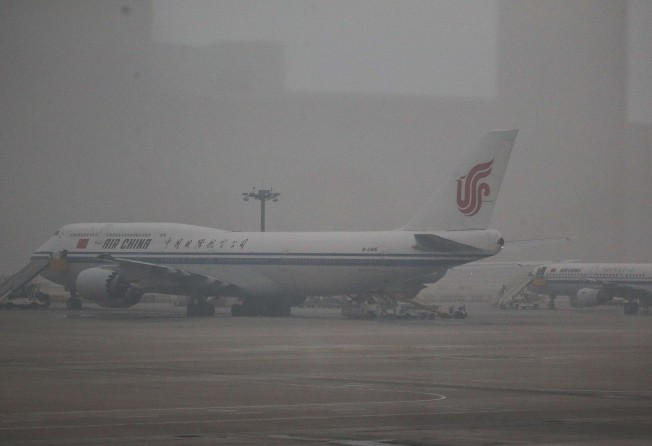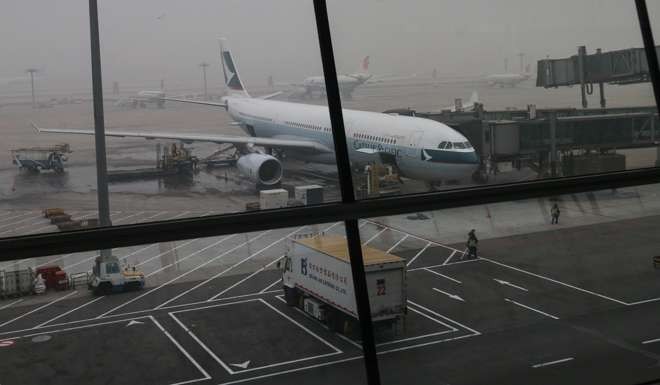China’s ‘smog refugees’ give airlines a boost during Lunar New Year – but troubles still lie ahead in 2017
International airline bookings soar 30 per cent over holiday season, and 1m predicted to travel abroad this year with the sole intention of giving their lungs a rest

Chinese airlines are toasting an unexpectedly cheerful Lunar New Year, with a sharp pick up in international passenger numbers in January, according to a new report from JP Morgan.
The lingering winter smog over large tracts of northern China, it seems, encouraged more to avoid not only the annual scrum in travelling to meet relatives, but exposing themselves any further to the worsening air quality, it said.
The investment giant underlines it still maintains a cautious view for the airline sector this year, but it’s certainly hard to ignore the thumping 30 per cent rise in international revenue passenger kilometers growth (a measure of sales volume of passenger traffic) compared to a year ago, from late December to the first three weeks of January.
“This demand pick-up was pretty unexpected as Chinese airlines have been busy cutting international capacity growth since October, due to industry overcapacity and the collapsing yield,” said JP Morgan’s Boyong Liu.
International consultancy firm Mckinsey & Company has highlighted China’s tourism industry as an economic bright spot as people earn more and head overseas in greater numbers.
Mckinsey predicts China’s middle class will likely account for 54 per cent of urban households and 56 per cent of urban private consumption by 2022, and as a dark cloud, literally, continues to hang over many parts of the country, more are being encouraging to seek a break from the hazardous murk, overseas, it says.
In December, Ctrip.com, one of China’s largest online travel agents, estimated 150,000 travelled abroad with the sole intention of giving their lungs a rest, and predicts a one million to do so annually, creating a whole new “reason to travel”.
New phrases to emerge from the gloom are “smog holidays”, being taken by “smog refugees”.
On two particularly bad days, December 16 and 17, international travel bookings soared, according to JP Morgan’s Liu.
But again, he cautions these travellers off in search of fresher surroundings are unlikely to help the overall industry stay robust through the year, as they are not a sustainable source of customers, for a sector which remains oversupplied, according to the report.
“Capacity growth is expected to continue outpacing demand, particularly for international routes, and expect tourism yields to drop after the CNY peak,” Liu wrote.

Similarly, CLSA analysts Rajani Khetan and Michael Luo, also offer an “Underweight” rating on the Chinese airline sector and recommend selling shares in three major Chinese airline companies: Air China, China Eastern Airlines, and China Southern Airlines.
The two were optimistic about total international traffic growth for the three, but see likely weakness in some North Asian markets including Taiwan and South Korea due to political interventions.
“We forecast Chinese airlines to see yield support from a better supply outlook in 2017,” said Khetan and Luo.
“However, the negatives of higher fuel prices, the renminbi’s weakness and higher interest rates will comfortably offset any lift in yield.”